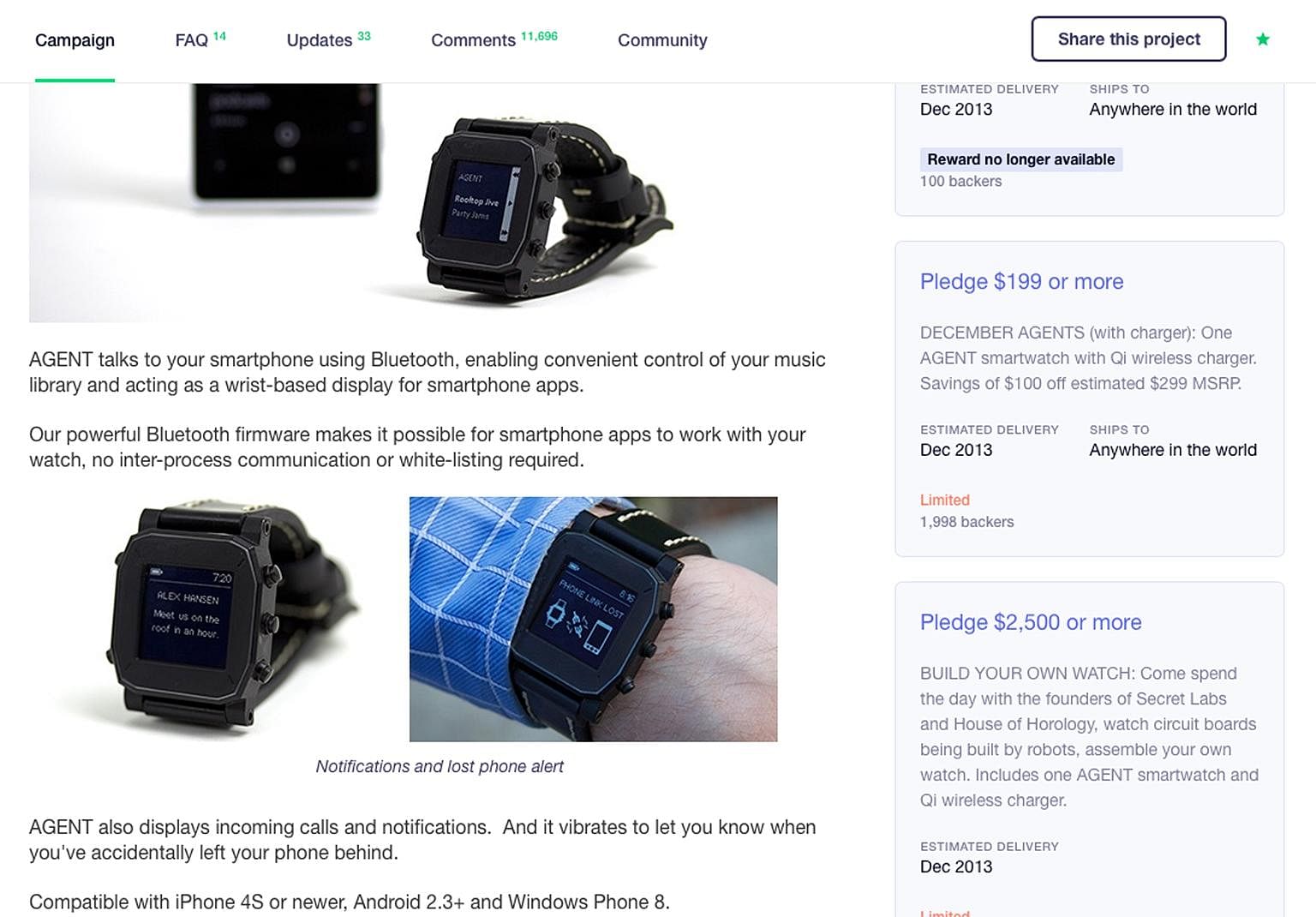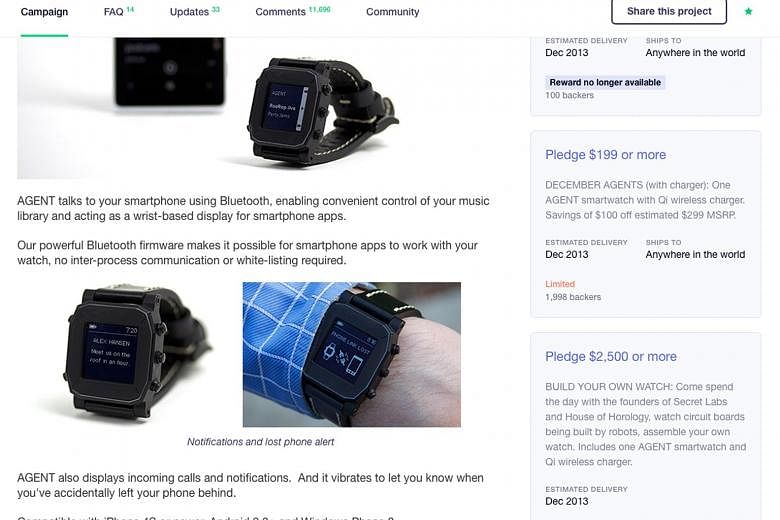My journey in supporting crowdfunding projects started in December 2010 when I backed Lunatik, a watch strap for iPod nano, in Kickstarter (one of the top crowdfunding websites). My iPod nano is still attached to Lunatik.
Since then, I have put my money into many crowdfunding campaigns, ranging from smartwatches like Pebble, to games like Torment: Tides Of Numenera.
The upside in supporting these crowdfunding projects is the lower price you will be paying compared with the retail price when the product is finally out. At times, it can be half of the retail price (not including shipping).
It also gives indie or smaller developers a chance to turn their ideas into reality. In addition, many crowdfunding projects have churned out truly useful gadgets and refreshed beloved niche products, because the developers had heeded what consumers wanted.
For example, I am an ardent fan of the Wing Commander space flight-sim game series. But, with the game industry interested only in releasing first-person shooter and open-world action adventures, I had thought I would never see another space flight-sim.

That is until Wing Commander creator Chris Roberts started a crowdfunding campaign for his new Star Citizen space flight-sim game. Needless to say, I immediately put my money into it.
But here comes the problem:Too many of these campaigns have been delayed - some for an awfully long time. Star Citizen has been in development since 2012, and there is still no sign of when it will be released.
Most of the time, delayed projects still deliver in the end. I can live with that.
For example, I backed the Baubax blazer, which has multiple slots and sleeves to put tablets, phones and even a can of drink, as well as a neck pillow and built-in gloves. Although its delivery was late by seven months, it has become the one jacket I would usually take along when I go to the United States.
I am lucky that only one out of the 15 or so crowdfunding projects that I have backed is a dud.
That dud is the Agent smartwatch that I backed in Kickstarter in 2013. It was supposed to be the world's smartest watch with a 1.28-inch memory display, wireless charging and support for iOS, Android and Windows smartphones. It raised more than US$1 million (S$1.4 million), nearly 10 times its target.
Originally slated to be launched in early 2014, the project has gone cold. The last update by the developer on Kickstarter was a year ago - on May 1 to be exact.
There was even a crowdfunding campaign for a lawsuit against Chris Walker, the man behind Agent smartwatch. That was eventually unsuccessful, as backers did not want to waste any more time and money. I had already written off the US$199 I put into the project.
So should you put your money on crowdfunding projects?
My advice is this: Do a background check on the crowdfunding campaign starter. Some might already have a great track record, and some might be beginners.
But always be prepared to lose the money you put into these projects. It is not a pre-order, as much as you think it is one. These projects might fail, and you have no recourse. You are like a super-mini venture capitalist betting on a start-up.
And, most importantly, put in an amount you are comfortable with. My personal rule of thumb is no more than US$200. Of course, the amount might vary depending on your financial resources, what the product is and its perceived value and other factors.
Crowdfunding a project is always a risk. But, like all things in life, you need to take risks to reap the rewards.


